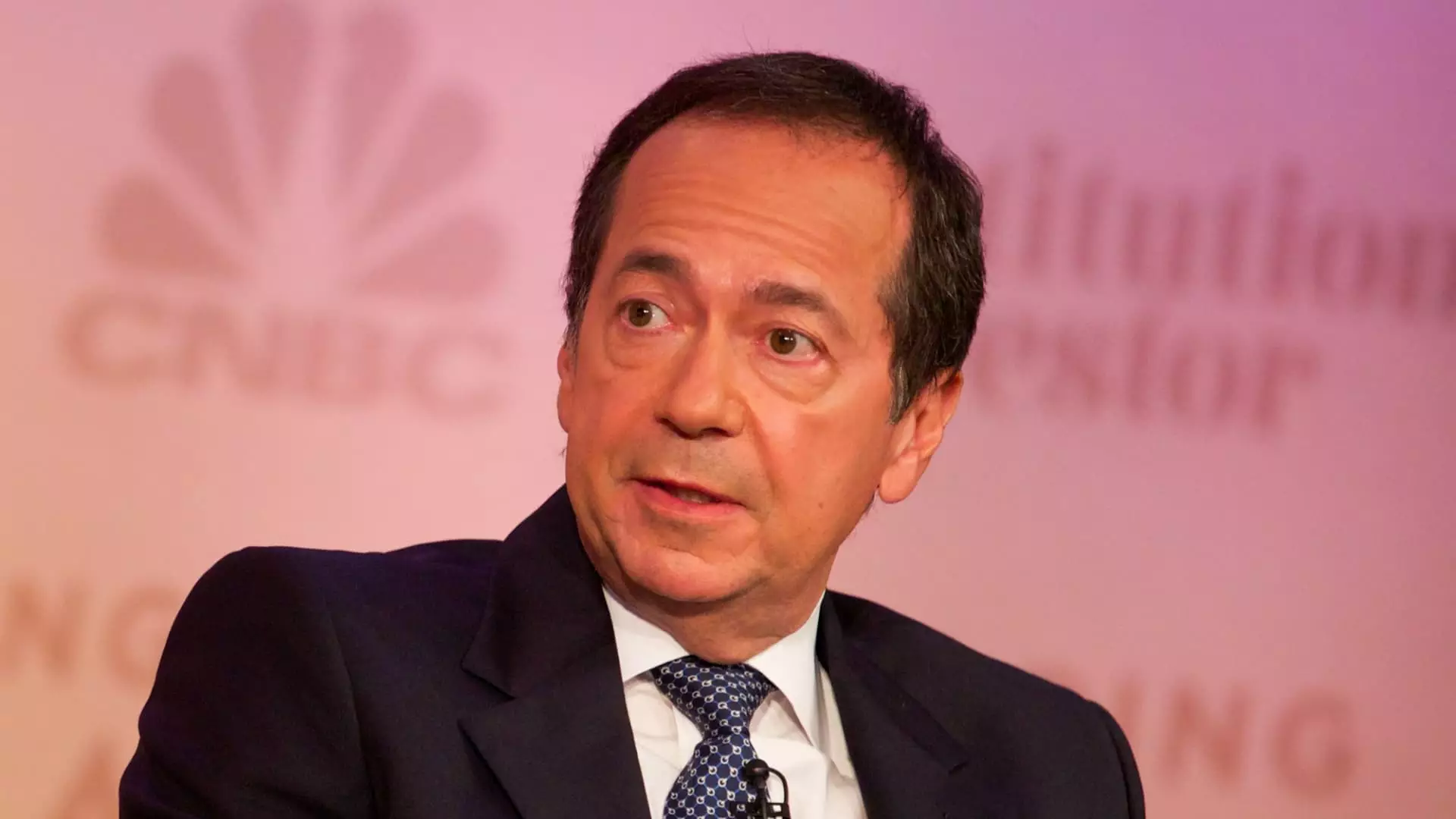John Paulson, a billionaire investor known for his lucrative short position against the housing market during the 2008 financial crisis, has been a polarizing figure in the financial sphere. As a prominent supporter of former President Donald Trump and an influential voice in the economic community, his warnings have significant implications. Recently, during an interview on CNBC, Paulson issued a stark warning about potential market catastrophes stemming from Vice President Kamala Harris’s proposed tax reforms. He believes that implementing such policies could lead to substantial financial turmoil and an economic recession.
The tax proposals under scrutiny include raising the corporate tax rate from 21% to 28% and significantly increasing the capital gains tax for high-income earners—from 20% to a striking 39%. Additionally, Harris has previously supported a 25% tax on unrealized capital gains for wealthier households, which could include those with assets exceeding $100 million. These proposed changes aim to increase government revenue but have faced skepticism regarding their viability and potential impact on the economy.
Paulson, in his commentary, highlights that such drastic tax increases could incite a market collapse. He maintains that these policies would disrupt not only the stock markets but also real estate prices and the value of various investments. The billionaire’s assessment is informed by his historical successes in predicting market shifts, especially in the lead-up to the financial crisis.
An essential component of Paulson’s argument centers on the potential for a market crash if these tax reforms are enacted. He posits that taxing unrealized gains would lead to “massive selling” across multiple asset classes, including homes, stocks, and other investments. This conclusion raises critical questions about the balance between taxation and economic stability.
While Paulson’s fear of short-term economic impacts is notable, he is not the only voice in the discussion. While some Wall Street economists and strategists agree that raising corporate taxes could negatively influence earnings for S&P 500 companies, they express doubts that it would result in the drastic downturn Paulson anticipates. This disconnect illustrates the complexity of economic forecasting and the multitude of variables that influence market behavior.
The political landscape adds another layer of complexity to these proposed tax changes. While Harris has endorsed higher taxes on the wealthy as part of a broader strategy to fund social programs, there is apprehension about whether these proposals can survive the legislative hurdles in Congress. Moreover, the potential opposition from influential investors and business leaders could complicate the narrative surrounding these tax plans.
Paulson has established himself as not just an investor but also an advisor to Trump, and rumors circulate about his potential role in a future administration. His views resonate with a segment of the financial community that prioritizes pro-business policies. However, this raises the question of how much influence a single investor should wield over public policy—especially when financial decisions can have widespread ramifications for the economy at large.
As discussions around taxation evolve, Paulson’s warnings urge caution. The potential for significant market disruption associated with higher taxes must be critically assessed. While the intentions behind tax reforms may focus on social equity and government funding, the economic implications could pose serious risks.
The intersection of tax policy, market stability, and economic growth calls for extensive deliberation from all stakeholders involved. As the political climate shifts and tax proposals are debated, it becomes increasingly necessary for investors, policymakers, and citizens to engage in informed discussions that prioritize both equitable taxation and economic resilience. Paulson’s perspective serves as a reminder that any financial policy must balance ambition with caution to avoid destabilizing the very systems it aims to protect.

